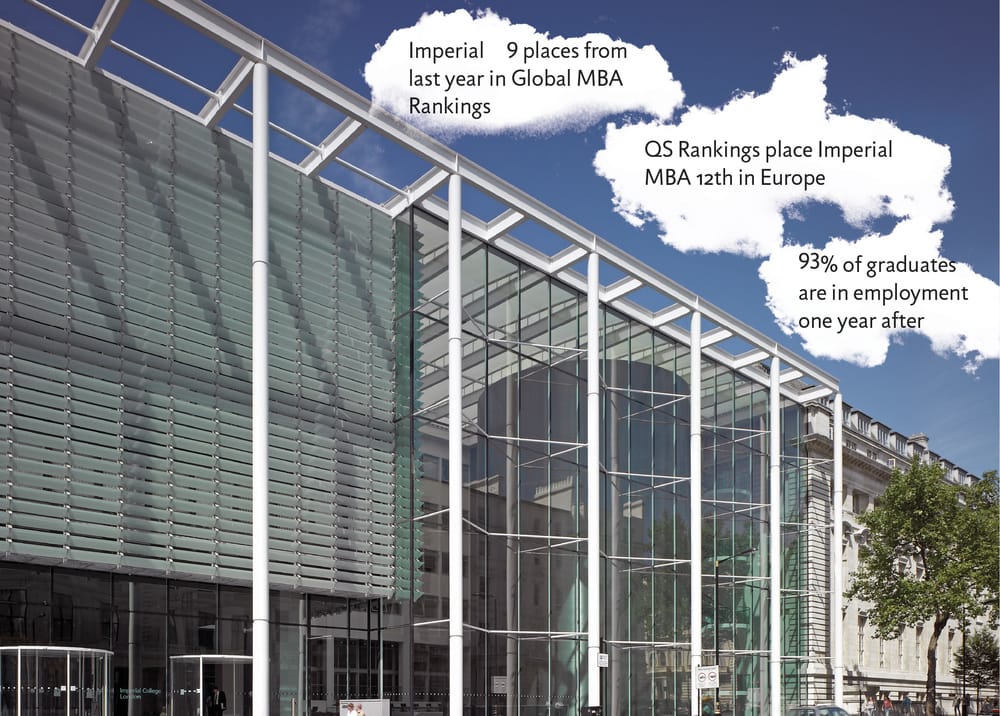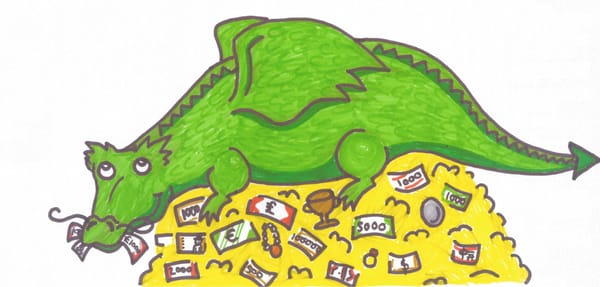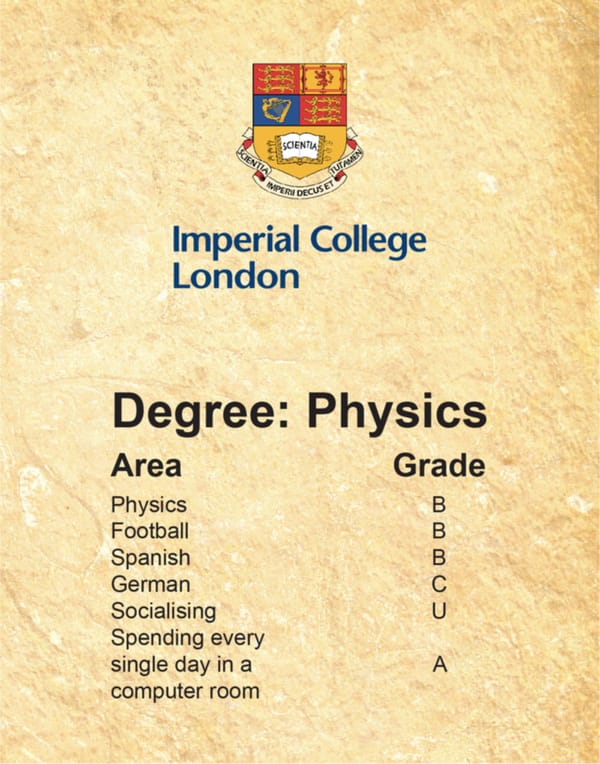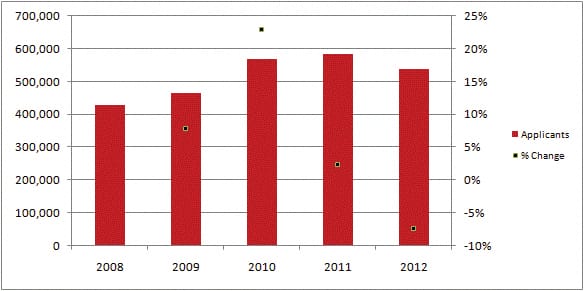Down to business?
Nida Mahmud probes the latest ranking of the Business School

Imperial College London has consistently ranked within the World Top 10 in the QS rankings as well as in other respectable league tables. However, Imperial’s Business school rankings for the MBA programme are slipping, with Imperial’s MBA currently being ranked 46th place in the Financial Times. These rankings are a significant decrease from previous years, when the business school took 37th place last year and was ranked 32nd in 2010, which was the highest ranking achieved by Imperial’s MBA programme. Imperial’s business school entered the top 90 in 2002, it first broke into the Financial Times world’s top 50 MBA rankings in 2006. This equated to an impressive rise of 30 places within 3 years. Yet the 14 place slip over the last 3 years may suggest that the rapid boom was short lived.
FT rankings overview
This year, Imperial’s MBA ranking positions it lower than LSB (4th), Oxford (20th), Cambridge (26th), Warwrick (27th ), Manchester (31st), Cranfield (36th) and Cass (38th). Within the sub categories, Imperial’s highest was for career progress, where it came in at 19. Imperial’s value for money was ranked in 38th position.

The tuition fees for the full time MBA are £36,000; this is a fairly competitive value in terms of cost if compare to London Business School (LBS), where the MBA tuition fees were almost 60% more than Imperial’s at a tremendous £57,500. The FT ranks LBS 4th and this was the highest ranking achieved by any UK business school. Stanford ranked 1st place, it has a tuition fees of $106,236, which equates to £66,496. It may seem like the tuition fees of an MBA programme increases with its ranking, however, the cost not always correlated to its position in the league table. The MBA offered by India’s Institue of Management Ahmedabad was ranked 11th by the FT; the tuition fees were Rs. 15 Lakhs, which equates to £17,280.
How are the FT rankings compiled?
To be considered for the FT ranking, the business school must be internationally accredited as well as have run the course for at least four consecutive years. In 2012, 150 business schools participated in the rankings. The data is compiled from online surveys completed by the school as well as former students. 20 different criteria are used to determine the final ranking. Data from alumni contributes to 8 of the 20 categories, which carries 59% of the rankings weight. Data collected in 2012 carries 50% of the final weight, the remaining data is from the 2010 and 2011 rankings that contribute 25% each. The first two categories investigate the difference in the alumni salary from the start of their MBA to 2012, this gives the current and weighted salary for the business school. 11 other criteria contribute to 31% of the final rank, they are determined by a questionnaire completed by the business school. This questionnaire investigates factors such as diversity of teaching staff and MBA students as well as the international reach of the MBA. The final criteria is the research rank, it calculates the number of articles published by staff members in 45 different journals. Consequently, a final score is calculated for each school that can be used to rank the MBA.
The QS rankings
The QS Global 200 Business Schools Report ranks business schools with respect to geographic location or MBA specialisation. Imperial was ranked 12th within the Europe business school category. For the specialised MBA category, Imperial makes the global top 50 for two categories: Entrepreneurship and Finance, at positions 24 and 22 respectively for 2012. QS also offer a personalised score card service, which is an interactive tool that personalises the MBA rankings depending on the criteria most important to the student.
And Finally….
Nevertheless, university rankings should also be taken with caution as different methodologies are used to compile the rankings. It is sometimes difficult to know how the rankings are compiled and what sources have been considered. Furthermore, taking a global view of the MBA rankings may be misleading. For example, a lot of emphasis on MBA league tables is placed on the average salary received after graduation, yet this figure varies drastically depending on the geographic location. Additionally, the MBA league table produced by the Economist has not considered Imperial within its top 100 rank, the reason behind this is unclear.








